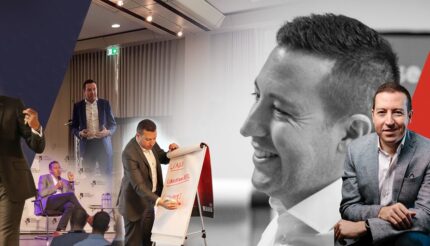From the outside looking in: The personal costs of being a business owner.
Being the boss is pretty awesome, right?
You can take a lunch break whenever you want, you answer to no-one, and you can give yourself a pay rise anytime you like. Now that’s a job I want!
How often have you heard this and thought – “If you only knew!”
The sleepless nights, the debt, the responsibility, not to mention the pressure of putting on a brave face and pretending everything is going great.
It’s a dark secret that thousands, if not millions, of business owners, are keeping and it’s usually considered a taboo subject because no-one wants to discuss their vulnerabilities or demonstrate weakness.
However, you’re not alone. You’re not the only one feeling this way.
According to a recent study by the National Institute of Mental Health, 72% of entrepreneurs are directly or indirectly affected by mental health issues than just 48% of non-entrepreneurs.
Covid-19 has had a significant impact on everyone’s lives, and business owners are far from immune. Despite government funding for certain sectors, the economy is precarious, and business owners are frazzled.
In the UK, GDP is estimated to have fallen by 20% in 2020 Q2. That was by far the largest quarterly fall on record, reported by the Bank of England.
It has meant that all business owners, for better or worse, have had to rethink their definition of success. Some businesses have borne significant damage, which may impact them for years to come, but despite everything, they will prevail: An accomplishment in itself. Yet many fail, quite understandably, to see this as a measure of success.
The Bank of England report continues to suggest
The outlook for the UK economy will depend critically on the evolution of the pandemic…
However, I would argue that it’s also dependant on our own evolution: our capability to adapt, restructure agile businesses and most importantly, our ability to shift our current thinking.
It is possible to turn things around and make your business work for you rather than working for your business.
I’m going to show you my proven strategies that significantly reduce the personal cost of being a business owner and allow you to move forward with confidence, clarity and a can-do attitude.
As a coach, the stresses and strains that accompany business ownership are some of the most common issues I encounter. Not at first, because most people have learnt to hide it well, but it’s nearly always there, deep in the undercurrent and influencing everything.
It manifests itself in many different ways:
- Overworked
- Overwhelmed
- Chaotic
- Imposter syndrome
- Over-zealous
- Very upbeat
- Procrastination
- Anger and Irritation
- Indecision
- Over-reacting
- Not reacting
- Burying your head in the sand
Sound familiar?
When you’re feeling stuck, it’s hard to see the wood for the trees & begin to imagine moving forward.
There are several ways of dealing with it, but the best I have found is to break seemingly HUGE problems down into more manageable chunks and take them step by step.
Step 1.
Ok, first things first: let’s try and break down the idea that you’re failing.
I imagine you know that it took Thomas Edison over 1000 times to invent a working lightbulb work. When asked about it, he replied
“I didn’t fail 1,000 times. The light bulb was an invention with 1,000 steps.” “Great success is built on failure, frustration, even catastrophe.”
How can you start to reframe your ideas of success and failure?
Just like Thomas Edison did, it’s time to take past mistakes and STOP reliving them, LEARN from them. Use the data and gain the insights to quickly understand why they didn’t work before, adapt and then try again.
Remember:
Don’t measure yourself against anyone else. Everyone’s goals and ambitions are different, just as they should be, and you can’t compare apples and oranges, so don’t even try.
Step 2.
Embracing Imposter Syndrome: Yes, you heard that right!
A recent survey by Randstad claims that one-third of all adults in the UK have experienced imposter syndrome.
However, according to Rich Litvin, “if you don’t feel imposter syndrome, you’re not playing big enough.”
What does that mean?
It means that to be the best, you need to push yourself. You need to move out of your comfort zone, learn about yourself and consistently aim higher and higher. Never settle, never stop and keep pushing.
“If your dreams don’t scare you, they aren’t big enough!”
Forget the negative connotations of ‘imposter’ being a negative trait and reframe it as your new superpower. I challenge you to give it a go.
Remember:
Big players don’t consider imposter syndrome a flaw of their character – it’s a feature. Embrace it and move on.
To find out more and to speak to me about balancing your business success and the impact if has on you personally, contact me at businessgrowth@actioncoach.com or call 07592 691699.



